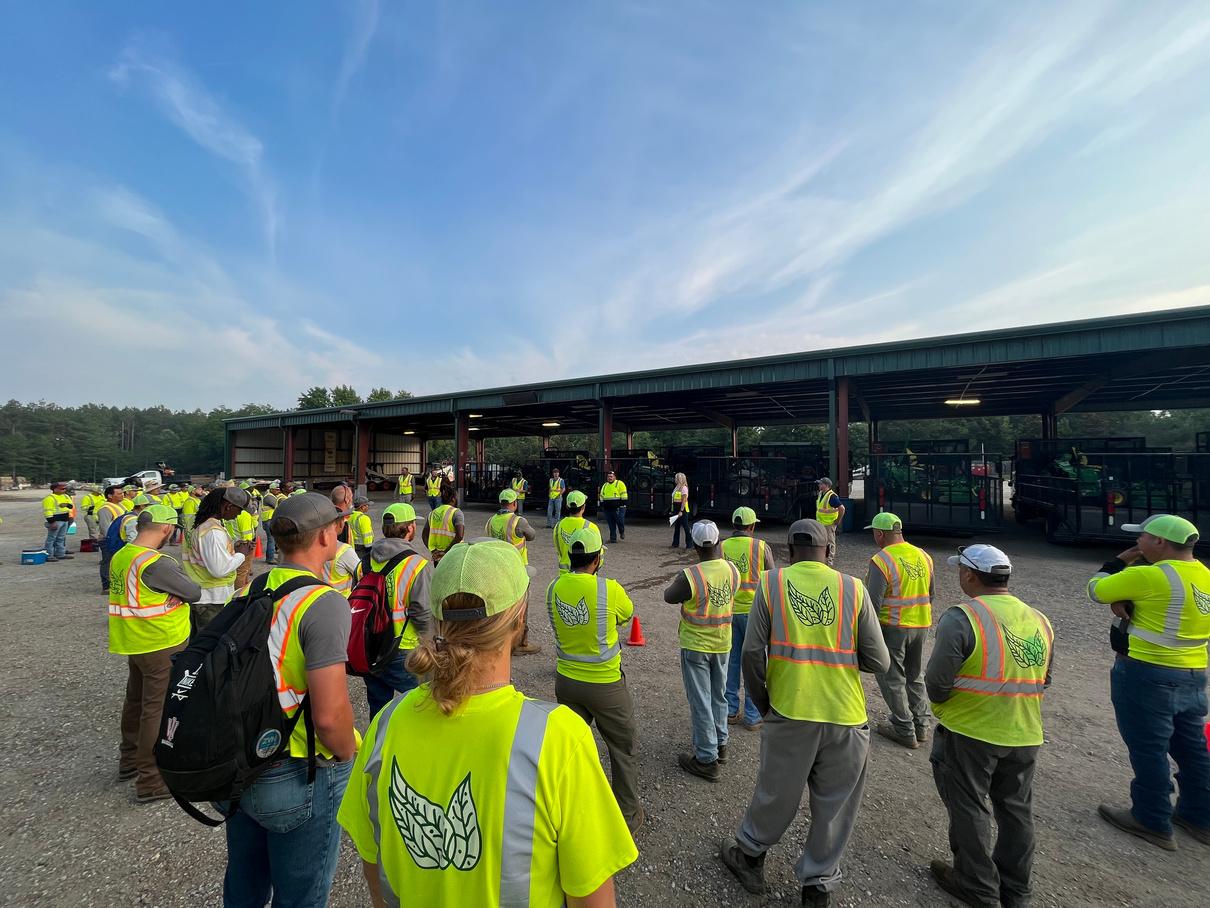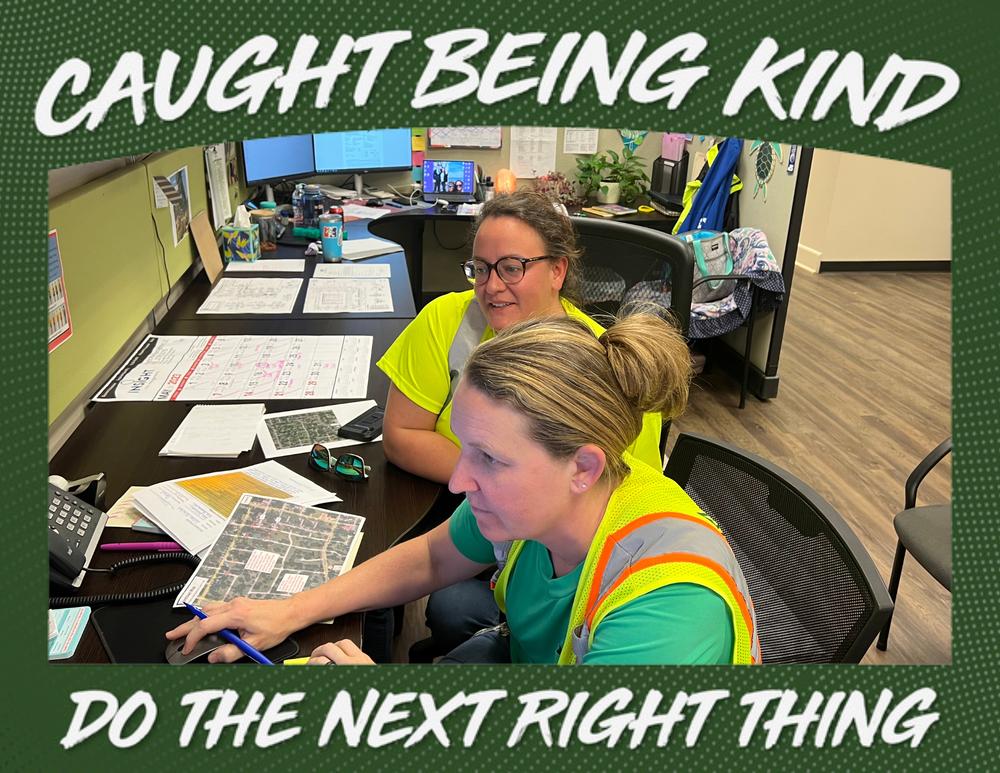
2 minute read
Heat-related illness is dangerous, preventable
By Josh Wilder steff manager
Heat-related illness – also called heat stress – is a dangerous, potentially fatal threat to workers in our industry Physical labor causes the body to generate heat and lose fluid, putting you at increased risk of heat stress compared to people who are just exposed to hot temperatures
Hydration is important to avoiding heat-related illness, which is a series of conditions that begins with dehydration and can progress to heat exhaustion and heat stroke Heat stroke literally is a stroke and is often fatal Progression from dehydration to heat stroke can take hours or as little as 20 minutes, depending on your health, the type of work you’re doing, and weather conditions.
How can you ensure you’re adequately hydrated throughout your shift?
• Be aware that staying hydrated might require more fluids than you think The amount of fluids you need depends on factors such as age, weight, general health, work being performed, and weather conditions, but 1 quart per hour –which equates to 2 gallons per 8-hour shift – is appropriate for most people
• Tell your crew leader/supervisor if you have hypertension, high cholesterol, or diabetes, or take anti-inflammatory medication These things increase your susceptibility to heat-related illness
• For every three cups of water you consume, drink half a cup of a sports drink in order to replenish the sodium, potassium, glucose, and electrolytes your body needs
• Don’t drink alcohol or caffeine while working in a hot environment or the night before such work These are dehydrating agents
• Don’t wear tight or dark clothing or a tight-fitting hat or rag on your head Snug garments prevent evaporation of perspiration – the process that cools your body.
• Monitor your hydration level by noting how frequently you urinate and the color of your urine You’re not drinking enough if you aren’t urinating every two to three hours or if your urine is yellow If your urine is dark, you are dehydrated
What are the signs and symptoms of heat-related illness?
• Dehydration: Decreased perspiration, thirst, a cool, clammy feeling, headache, poor appetite, darkcolored urine
• Heat exhaustion: Headache, dizziness, lightheadedness or fainting, weakness, mood changes, such as irritability or confusion, upset stomach, or vomiting
• Heat stroke: Dry, hot skin, lack of sweating, confusion, bizarre behavior or combativeness, loss of vision or consciousness, seizures or convulsions
What should you do if you experience symptoms of heatrelated illness or notice signs in a co-worker?
• Tell a co-worker or supervisor if you experience symptoms of heat-related illness Go to a cool, shaded area, and rehydrate with water or sports beverages if you are dehydrated You can return to work when you feel better. If symptoms are still present after 30 minutes, seek medical attention
• If a co-worker displays signs of heat exhaustion, call 911, notify your crew leader, and direct the person to a cool, shaded area Take off his/her hat, shoes, and socks, and provide a sports beverage while waiting for medical assistance.
• If a co-worker displays signs of heat stroke, follow the steps above for heat exhaustion, but also spray or wipe the person’s skin with cool water and fan him/her If a seizure occurs, turn the person on his/her side, tilt the head back, and thrust the jaw forward in order to keep the airway open Get emergency medical assistance immediately!
1 quart of liquids per hour – which equates to 2 gallons per 8-hour shift – is appropriate for most people
When Junior Account Manager/FOM
Rachel Green of Commercial Maintenance, foreground, needed help with an estimate, Assistant Project Manager Katie Goodwin of Commercial Construction didn't hesitate to pitch in VP of Commercial Sales

Ron Bobal took this photo of the kindness in action and submitted it with his nomination.



